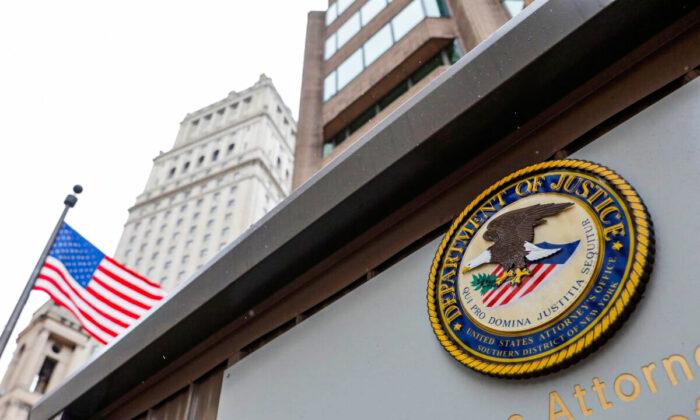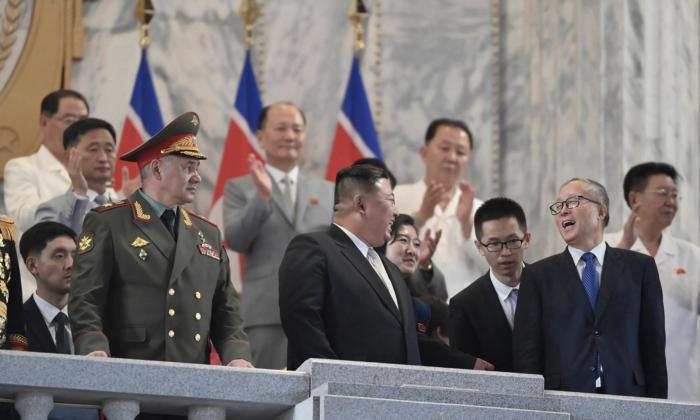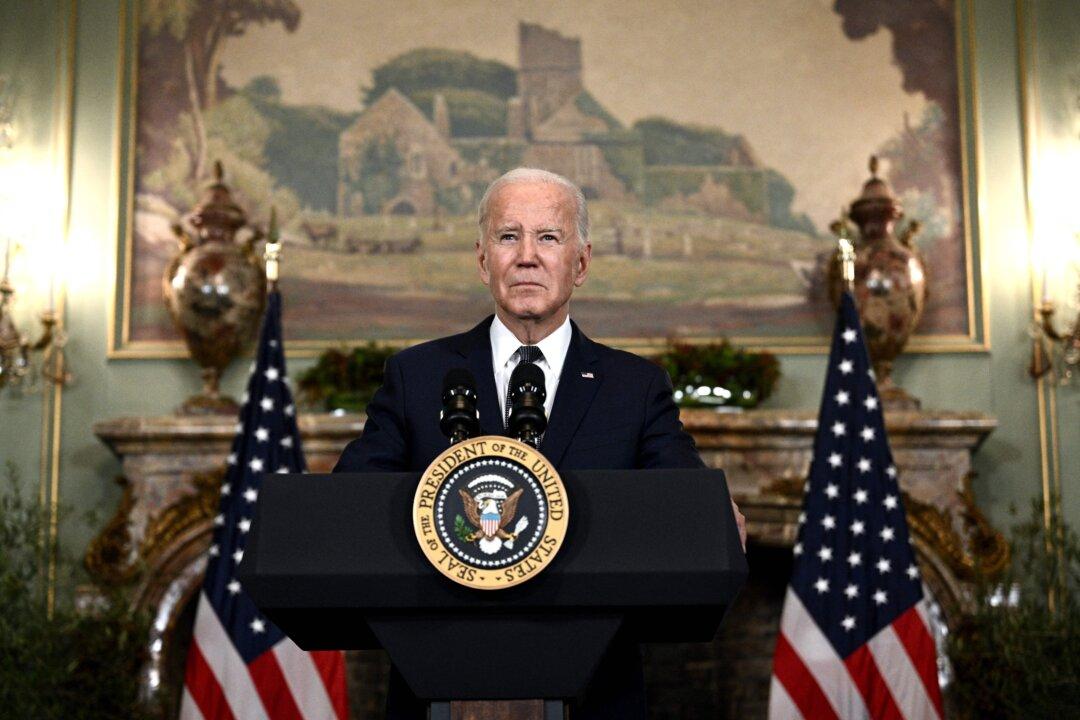News Analysis
The Chinese Communist Party (CCP) poses the greatest espionage threat to the United States. Yet Chinese agents continue to obtain U.S. visas, and the Biden administration terminated the U.S. counterespionage program last month.
A group of U.S. lawmakers has recently called on the Department of Justice (DOJ) to reinstate the China Initiative program to counter CCP espionage.
On March 16, the DOJ charged five people with spying and harassing U.S. residents on behalf of China’s secret police. The defendants were part of a transnational repression program aimed at silencing outspoken critics of the CCP.
These actions included interfering with federal elections, conspiring to undermine the U.S. congressional candidacy of an individual who was both a U.S. military veteran and a leader of the 1989 pro-democracy demonstrations in Beijing, which led to the Tiananmen Square Massacre.
All five defendants had ties to the CCP, while two worked directly for the Ministry of State Security (MSS). One of the defendants, Shujun Wang, who was active in pro-democracy groups in the Chinese diaspora community in Queens, New York, allegedly transmitted data on activists to the MSS. As a result, one of his victims was arrested when he visited Hong Kong. U.S. authorities charged Wang with making a false statement on his visa application, as he claimed to have had no connection to the MSS. The others were charged with acting as agents for the CCP.
Assistant Attorney General Matthew G. Olsen of the Justice Department’s National Security Division stated that transnational repression by the CCP harms the American people, threatens the rule of law, and is antithetical to core American values as it represses freedom of speech.
The United States is not the only country that the CCP targets.
The Canadian government has also accused the Chinese regime of espionage. A January report by the Canada Border Security Agency (CBSA) found that the CCP was engaging in a “systematic campaign of intelligence-gathering, persuasion, influence, and manipulation.” The report came shortly after Canada refused the immigration of a former member of the Overseas Chinese Affairs Office (OCAO).
According to an official CCP statement, the OCAO is an administrative office that helps the premier address affairs related to overseas Chinese and “to study and formulate the guidelines, policies, and regulations concerning overseas Chinese affairs, as well as to supervise and check their implementation … to provide the information to the Central Committee of the CPC [CCP] and the State Council.”
In actuality, the OCAO is under the CCP’s United Front Work Department (UFWD), which conducts covert actions, espionage, and intelligence gathering in overseas Chinese communities. The UFWD has been active in the United States, as well.
Since 2000, the Center for Strategic and International Studies (CSIS) has recorded over 160 publicly reported instances of Chinese espionage in the United States and more than 50 attempts to smuggle out munitions or controlled technologies. Among these cases, “42% of actors were Chinese military or government employees, 32% were private Chinese citizens, while 26% were non-Chinese actors (usually U.S. persons recruited by Chinese officials).”

The data shows that the frequency of CCP-linked espionage cases has increased steadily over the past decade. Only 24 percent of these cases occurred between 2000 and 2009, while 76 percent occurred between 2010 and 2021. In 2020, FBI Director Christopher Wray said that over half of the espionage cases the bureau was investigating involved China.
The Foreign Agents Registration Act (FARA) requires an “agent of a foreign principal” to register with the DOJ within 10 days of agreeing to be an agent or principal or within 10 days of beginning such activities. Foreign principals can include a foreign government, foreign political party, “foreign government entities, political organizations, businesses, nonprofits, state-owned enterprises, and even individuals.”
China’s National Intelligence Law requires all Chinese citizens and companies to hand over data to the CCP and aid in intelligence gathering, whether inside China or abroad. Under the FARA definition, this effectively makes all Chinese citizens in the United States potential agents. Therefore, closer scrutiny is needed of visa applicants with suspected ties to the People’s Liberation Army, MSS, UFWD, or any other CCP-linked or backed organization.
The China Initiative, a Trump-era national security program launched in November 2018, focused on economic espionage and trade-secret theft by the CCP. By the time the DOJ announced the initiative’s termination in February 2022, over a thousand investigations were opened, resulting in 77 convictions against Chinese agents.
Former Attorney General William Barr, who played a leading role in the program, warned U.S. corporations about sharing their technology with China, saying that the CCP would stop at nothing to overtake the United States. He said: “China’s goal isn’t to trade with the United States. It is to raid the United States.”
The program was criticized by Democrat lawmakers who felt that the name, China Initiative, was racist and that it fueled Asian hate. The initiative was also accused of creating a climate of fear, frightening Chinese researchers and scientists away from U.S. research institutions, and threatening the technological advancement of the United States.
On Feb. 23, the Biden administration announced that it would shut down the China Initiative. However, CCP spying has not ended. Consequently, Republican lawmakers on March 24 petitioned the administration to reinstate the program.
Views expressed in this article are opinions of the author and do not necessarily reflect the views of The Epoch Times.






Friends Read Free